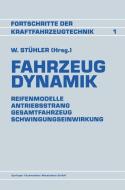
Motor vehicle manufacturers of Germany
Volkswagen, BMW, Porsche, Bugatti, Daimler AG, Audi, Volkswagen Group, Opel, MAN SE, Maybach, Mercedes-Benz, Ford of Europe, Volkswagen Commercial Veh
- Editore:
Books LLC, Reference Series
- EAN:
9781157669098
- ISBN:
1157669093
- Pagine:
- 96
- Formato:
- Paperback
- Lingua:
- Inglese
Descrizione Motor vehicle manufacturers of Germany
Source: Wikipedia. Pages: 94. Chapters: Volkswagen, BMW, Porsche, Bugatti, Daimler AG, Audi, Volkswagen Group, Opel, MAN SE, Maybach, Mercedes-Benz, Ford of Europe, Volkswagen Commercial Vehicles, Volkswagen Trucks and Buses, Loremo, Gumpert, Wiesmann, Veritas, Bitter Cars, Hanomag, Rheinmetall MAN Military Vehicles, Ruf Automobile, MAN Truck & Bus, Ford Germany, Framo, Isdera, Industrieverband Fahrzeugbau, Artega Motors, Multicar, Barkas, Apal, Melkus, Goliath, Jetcar, Drögmöller, HQM Sachsenring GmbH, Markranstädter Automobilfabrik, Yes! Roadster, Neumeyer, Contrac Cobus, Pegasus Automobile. Excerpt: Volkswagen (abbreviated VW) is the original and biggest-selling marque of the Volkswagen Group, which now also owns the Audi, Bentley, Bugatti, Lamborghini, SEAT, and skoda marques and the truck manufacturer Scania. Volkswagen means "people's car" in German, where it is pronounced . Its current tagline or slogan is Das Auto (in English The Car). For vehicle time line tables, see: Volkswagen (timeline), Model of Porsche Type 12 (Zündapp), Museum of Industrial Culture, NurnbergVolkswagen was originally founded in 1937 by the Nazi trade union, the German Labour Front (Deutsche Arbeitsfront). In the early 1930s German auto industry was still largely composed of luxury models, and the average German rarely could afford anything more than a motorcycle. Seeking a potential new market, some car makers began independent "peoples' car" projects - Mercedes' 170H, Adler's AutoBahn, Steyr 55, Hanomag 1,3L, among others. The trend was not new, as Béla Barényi is credited with having conceived the basic design in the middle 1920s. Josef Ganz developed the Standard Superior (going as far as advertising it as the "German Volkswagen"). Also, in Czechoslovakia, the Hans Ledwinka's penned Tatra T77, a very popular car amongst the German elite, was becoming smaller and more affordable at each revision. In 1933, with many of the above projects still in development or early stages of production, Adolf Hitler declared his intentions for a state-sponsored "Volkswagen" program. Hitler required a basic vehicle capable of transporting two adults and three children at 100 km/h (62 mph). The "People's Car" would be available to citizens of the Third Reich through a savings scheme at 990 Reichsmark, about the price of a small motorcycle (an average income being around 32RM a week). Despite heavy lobbying in favour of one of the existing projects, Hitler chose to sponsor an all new, state owned factory. The engineer chosen for the task was Ferdinand Porsche. By then an already famed engineer, Pors












